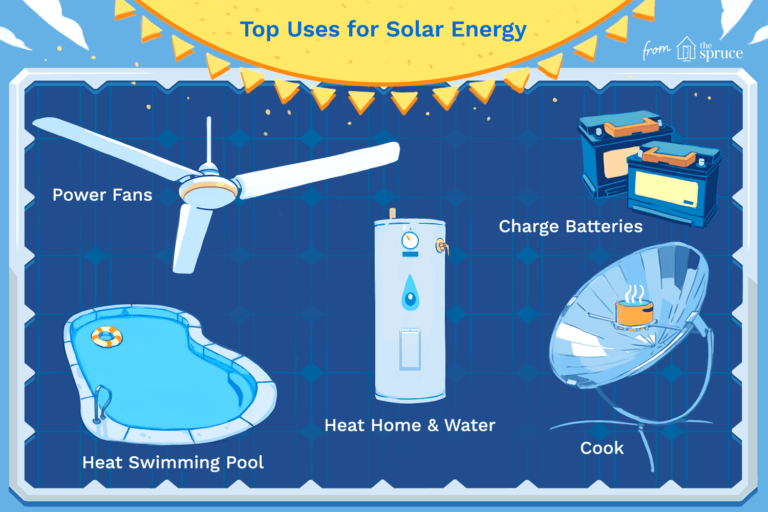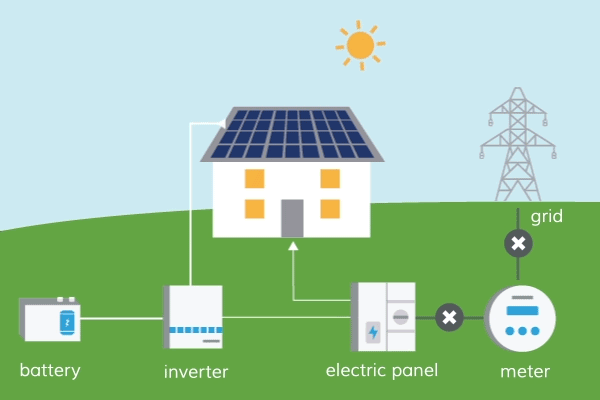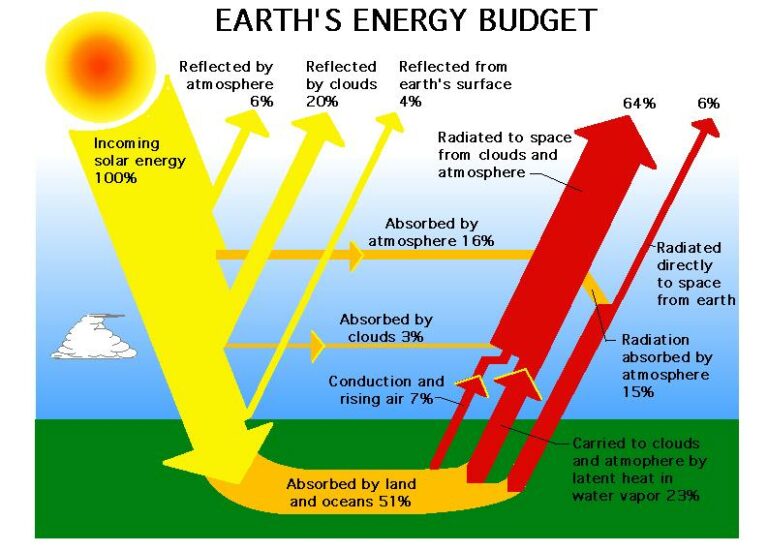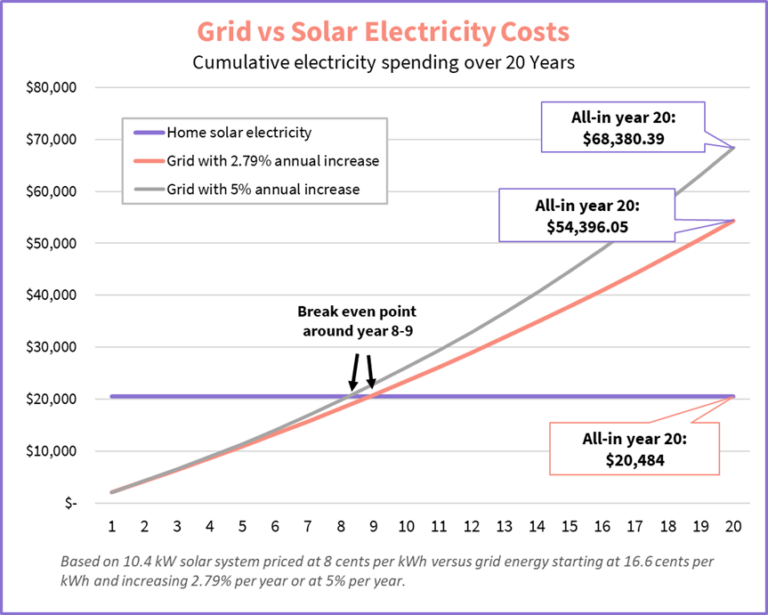Does Solar Power Produce More Energy Than Fossil Fuels?
Hey there! Are you curious about the power of solar energy compared to fossil fuels? Well, you’re in the right place! In this article, we’ll explore the question: does solar power produce more energy than fossil fuels?
Now, you might be wondering why this even matters. Well, let me tell you. Energy production is a big deal. It affects our environment, our economy, and our future. So, understanding the potential of solar power in comparison to fossil fuels can help us make informed decisions about the energy sources we use.
But before we dive in, let’s clear something up. When we talk about energy production, we don’t just mean the total amount of energy generated. We also need to consider factors like efficiency, sustainability, and environmental impact. So, keep these in mind as we explore the topic further. Alright, let’s get started!
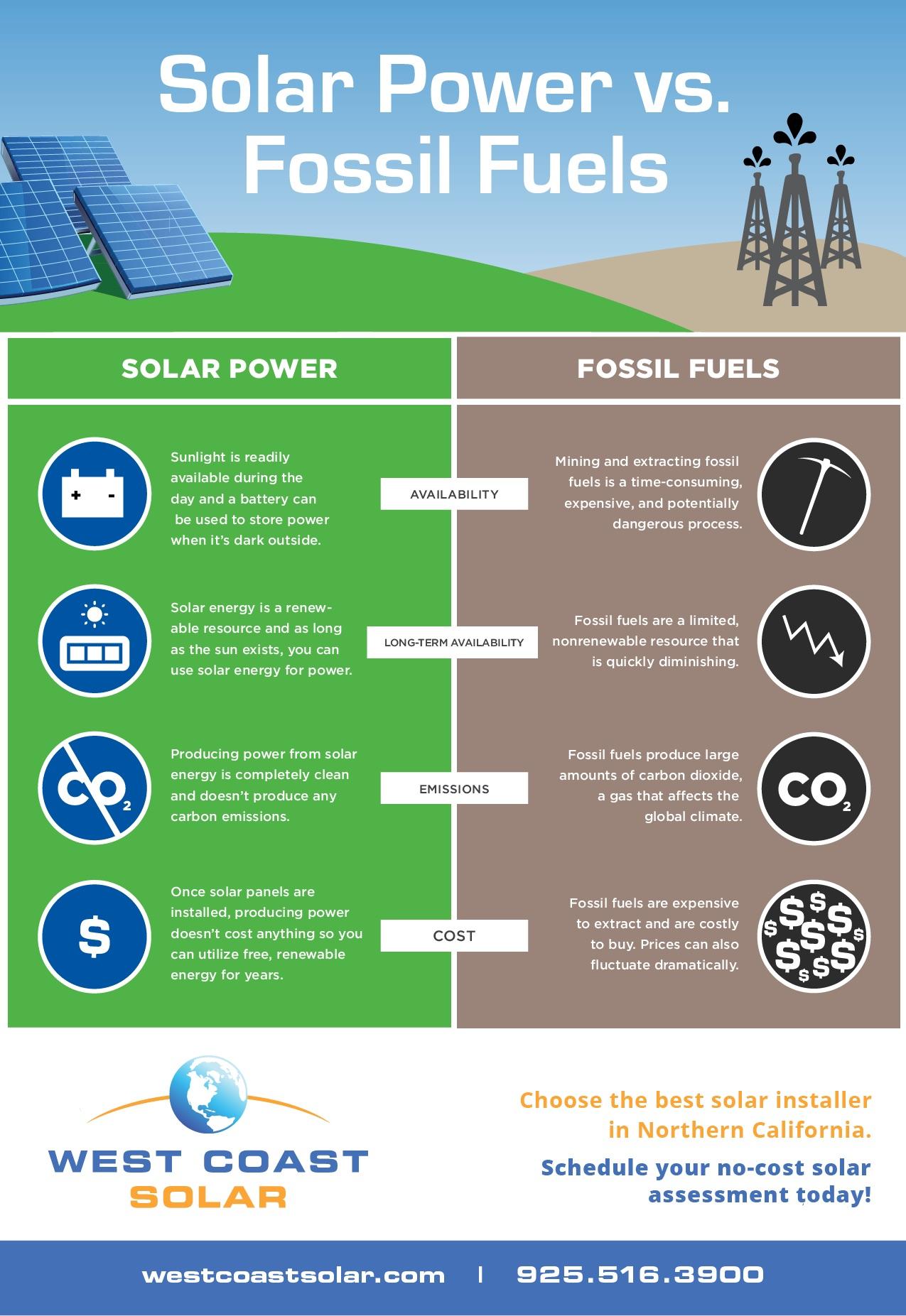
Does Solar Power Produce More Energy Than Fossil Fuels?
We live in an era where renewable energy sources are gaining more attention and importance. Solar power is one such source that has gained significant popularity in recent years. But how does it compare to fossil fuels? In this article, we will explore whether solar power produces more energy than fossil fuels, examining various factors such as efficiency, environmental impact, and long-term sustainability. By the end, you will have a clearer understanding of the potential of solar power and its role in our energy future.
The Efficiency of Solar Power
Solar power is often touted as a cleaner and more sustainable alternative to fossil fuels. One of the key factors that determine the effectiveness of a power source is its efficiency in converting sunlight into usable energy. Solar panels, made up of photovoltaic (PV) cells, harness the sun’s radiation and convert it into electricity. Over the years, advancements in solar cell technology have significantly increased their efficiency.
Currently, the most efficient solar panels can convert around 22-23% of the sun’s energy into electricity. While this might seem lower compared to the energy density of fossil fuels, it is important to note that solar power has a virtually limitless source of energy in the form of sunlight. Fossil fuels, on the other hand, are finite resources that require extraction and refinement, leading to environmental degradation and carbon emissions.
Furthermore, solar power can be generated at the point of use, reducing transmission losses that occur when transporting electricity over long distances. This decentralized approach enhances the overall efficiency and reliability of solar power systems.
Environmental Impact: Solar Power vs. Fossil Fuels
The environmental impact of energy sources is a significant consideration in today’s world. Fossil fuels, such as coal, oil, and natural gas, have been the dominant sources of energy for centuries. However, their extraction, refinement, and combustion have led to severe consequences for the environment and human health.
When fossil fuels are burned to generate energy, they release greenhouse gases such as carbon dioxide (CO2) into the atmosphere. These emissions contribute to climate change and air pollution, leading to a host of environmental and health issues. Additionally, the extraction processes for fossil fuels, such as mountaintop removal mining and offshore drilling, result in habitat destruction and water pollution.
In contrast, solar power has minimal greenhouse gas emissions during operation. The only emissions associated with solar power are from the manufacturing and installation of solar panels, which can be offset by their clean energy production over their lifetime. Solar power also reduces our dependency on fossil fuels, which promotes biodiversity conservation and reduces the risk of environmental disasters associated with their extraction.
Long-Term Sustainability and Viability
The long-term sustainability of our energy sources is a crucial consideration when evaluating the potential of solar power compared to fossil fuels. Fossil fuels are finite resources that will ultimately be depleted. As we continue to consume these resources at an alarming rate, it becomes increasingly important to shift towards more sustainable alternatives.
Solar power offers a sustainable solution. The sun, as a renewable energy source, will continue to provide us with energy for billions of years. By harnessing this energy through solar panels, we can meet our energy needs without depleting the planet’s resources. In addition, the advancements in solar technology have made it more accessible and cost-effective, driving its widespread adoption across industries and households.
Furthermore, solar power can be combined with energy storage systems, such as batteries, to provide consistent power even when the sun is not shining. This integration improves the reliability and grid independence of solar power systems, making them more viable for long-term energy sustainability.
The Benefits of Solar Power
1. Renewable and Sustainable: Solar power relies on the infinite energy of the sun, making it a renewable and sustainable source of energy.
2. Environmental Friendly: Solar power produces minimal greenhouse gas emissions and significantly reduces our reliance on fossil fuels, resulting in a cleaner and healthier environment.
3. Lower Energy Costs: With advancements in solar technology and declining installation costs, many homeowners and businesses can save on their energy bills by utilizing solar power.
Solar Power vs. Fossil Fuels: A Comparison
1. Energy Density: Fossil fuels have a higher energy density compared to solar power. However, the virtually limitless source of sunlight compensates for this difference.
2. Environmental Impact: Solar power has minimal greenhouse gas emissions and reduces the negative environmental consequences associated with fossil fuel extraction and combustion.
3. Long-Term Sustainability: Solar power offers a sustainable energy solution, relying on the infinite energy of the sun. Fossil fuels are finite resources that will deplete over time.
Tips for Embracing Solar Power
1. Assess Your Energy Needs: Determine how much energy you currently consume and how much solar power would be required to meet those needs.
2. Consult with Experts: Seek advice from solar energy professionals to assess the feasibility of installing solar panels and determine the optimal system size and design for your specific location.
3. Explore Government Incentives: Research available incentives, grants, or tax credits that can offset the upfront costs of installing solar panels.
The Future of Solar Power
The future of solar power looks promising as technology continues to advance, improving efficiency and reducing costs. Governments and organizations worldwide are recognizing the importance of investing in renewable energy sources, with solar power playing a significant role in the transition towards a cleaner and more sustainable planet.
As we move towards a future where renewables will dominate the energy landscape, solar power is set to become an essential component of our energy infrastructure. With continued research and development, increased efficiency, and improved storage capabilities, solar power will play a crucial part in meeting our energy needs while minimizing our impact on the environment.
So, if you’re considering adopting solar power, now is the time to embrace this renewable energy source and contribute to a more sustainable future.
Key Takeaways: Does Solar Power Produce More Energy Than Fossil Fuels?
- Solar power can produce more energy than fossil fuels in certain scenarios.
- The amount of energy produced by solar power depends on factors like the location, weather, and efficiency of the solar panels.
- In some regions with ample sunlight, solar power can be more efficient and cost-effective than fossil fuels.
- Fossil fuels, such as coal and oil, have been traditional sources of energy due to their high energy density and ease of extraction.
- The shift towards solar power is driven by its renewable nature, reduced environmental impact, and decreasing costs of solar technology.
Frequently Asked Questions
When it comes to energy production, there’s a lot of debate between solar power and fossil fuels. To help you better understand the topic, we’ve compiled some frequently asked questions and their answers.
1. How does solar power compare to fossil fuels in terms of energy production?
In terms of sheer energy production, fossil fuels currently outpace solar power. Fossil fuels have been the primary source of energy for decades, providing a consistent and abundant supply of power. However, solar power has been rapidly advancing and its efficiency and capacity have been steadily increasing over time. In fact, there are instances where solar power has surpassed fossil fuels in energy production.
It’s important to note that comparing the energy production of solar power and fossil fuels is not as simple as looking at the total output. Factors such as the availability of resources, environmental impact, and cost-effectiveness also play a significant role in determining which source of energy is better.
2. Is solar power a more sustainable source of energy compared to fossil fuels?
Yes, solar power is considered a more sustainable source of energy compared to fossil fuels. Fossil fuels are finite resources that take millions of years to form and are being depleted at an alarming rate. Additionally, their extraction and combustion contribute to air and water pollution, as well as greenhouse gas emissions.
Solar power, on the other hand, is derived from sunlight which is an abundant and renewable resource. The installation of solar panels does not involve any emissions or pollution and the panels have a long lifespan with minimal maintenance requirements. While the initial production and disposal of solar panels may have some environmental impact, the overall sustainability of solar power outweighs that of fossil fuels.
3. Can solar power meet the energy demands of the world?
Although solar power has the potential to meet a significant portion of the world’s energy demands, it may not be able to meet all of it at the current stage of development. The availability of sunlight, geographical limitations, and the efficiency of solar panels are some of the factors that affect the scalability of solar power.
However, with advancements in technology and increased investment in solar energy infrastructure, it is foreseeable that solar power can play a much larger role in meeting global energy demands. Many countries are already leveraging solar power as a significant component of their energy mix, and with continued innovation, solar power has the potential to become a major player in global energy production.
4. Are there any limitations to solar power compared to fossil fuels?
One of the main limitations of solar power is its dependency on sunlight. Solar panels rely on sunlight to generate electricity, which means they produce less energy on cloudy days or during the night. Fossil fuels, on the other hand, can be used to generate power at any time, regardless of environmental conditions.
Additionally, the initial installation cost of solar panels can be high, although it has been decreasing in recent years. Fossil fuels, being well-established and widely used, have a more established infrastructure and may be more readily available in some regions.
5. Which is more cost-effective: solar power or fossil fuels?
The cost-effectiveness of solar power compared to fossil fuels depends on various factors such as location, government incentives, and the cost of installation and maintenance. While the initial investment in solar power may be higher, the cost of solar panels has been decreasing over the years, making it a more affordable option in the long term.
Moreover, fossil fuels come with additional costs such as the environmental damage they cause and the health impacts associated with pollution. When considering the long-term costs and benefits, solar power is often considered more cost-effective, especially as advancements in technology continue to make it more efficient and affordable.
Renewables vs. Fossil Fuels: The True Cost of Energy
Summary
Solar power is a clean and abundant source of energy that can produce more electricity than fossil fuels. It is renewable, meaning it will never run out, unlike fossil fuels that are limited. Solar panels harness the sun’s energy and convert it into electricity, making it a sustainable and environmentally-friendly option. Although the initial setup costs may be higher, solar power can save money in the long run due to lower maintenance and operational expenses. Additionally, solar power helps reduce greenhouse gas emissions, contributing to a healthier planet for future generations.
While fossil fuels have powered our world for many years, they come with drawbacks. Fossil fuels are finite and can cause pollution, leading to various environmental and health issues. Furthermore, the extraction and burning of fossil fuels release carbon dioxide, a greenhouse gas that contributes to climate change. In contrast, solar power produces zero emissions during operation, making it a cleaner choice. With advancing technology and decreasing costs, solar power is becoming more accessible and increasingly competitive with fossil fuels. Considering its benefits for the environment and the potential for long-term savings, investing in solar power is a smart choice for a sustainable future.

